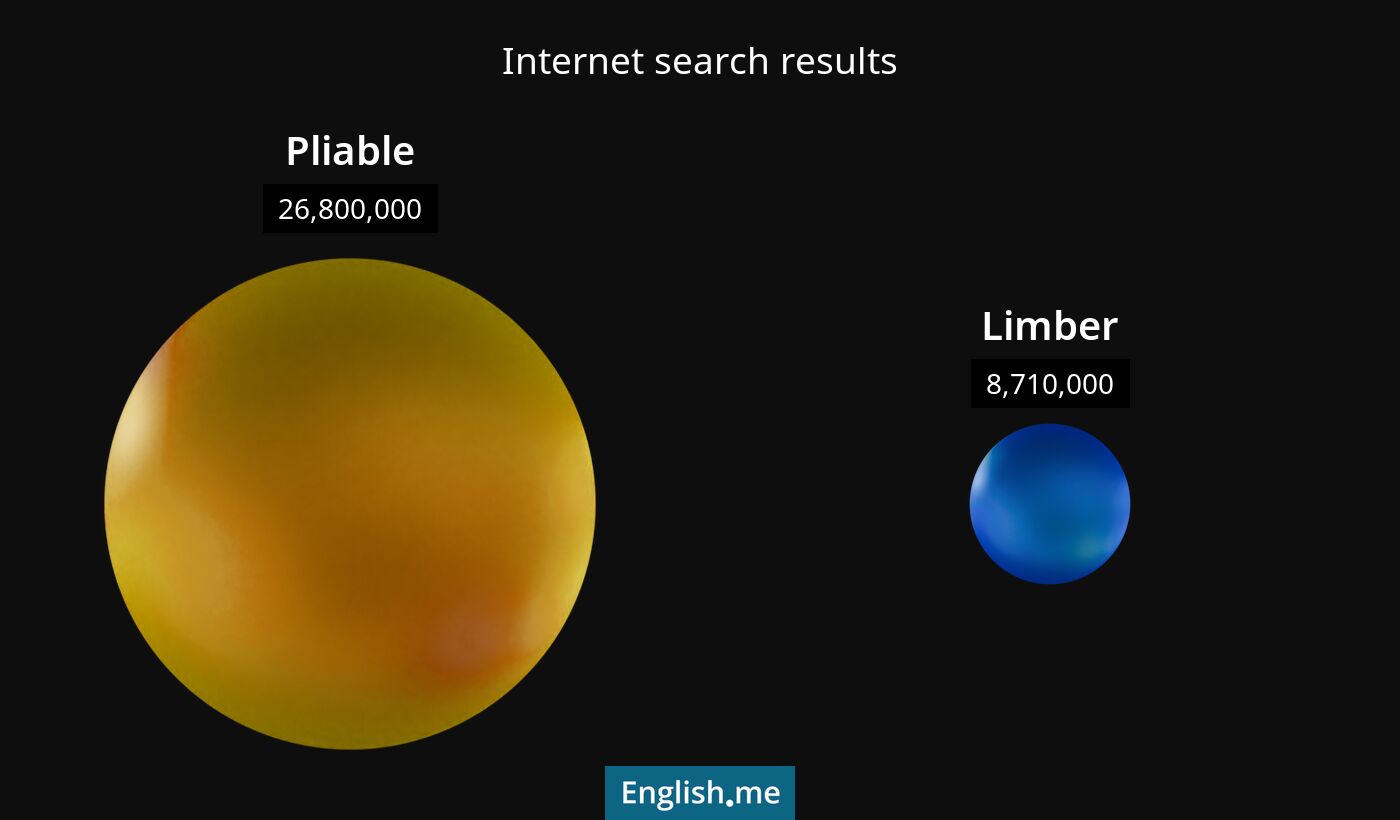Flexing vocabulary: the nuances of "pliable" vs. "limber"
Reviewed and edited by  Lloyd Cooper 09/10/2024, 12:58
Lloyd Cooper 09/10/2024, 12:58
English.me team member

 What is similar?
What is similar?
Both "pliable" and "limber" describe something that is flexible or able to bend easily without breaking. They can be used to refer to physical properties or metaphorically in other contexts.
 What is different?
What is different?
"Pliable" often refers to the ability to be easily bent or influenced, and can describe materials as well as people who are easily influenced or adaptable. "Limber" is more commonly used to describe physical flexibility in people or animals, often in the context of exercise or physical activity, and does not typically refer to being easily influenced.
 Which one is more common?
Which one is more common?

 Examples of usage
Examples of usage
Pliable- The artist used a pliable clay that was easy to mold into different shapes.
- She has a pliable nature and can adapt quickly to new situations.
- The gymnast's limber body allowed her to perform complex routines with ease.
- He performed a series of stretches to keep himself limber before the race.

 English
English español
español française
française italiano
italiano deutsche
deutsche 日本語
日本語 polski
polski česky
česky svenska
svenska Türkçe
Türkçe Nederlands
Nederlands